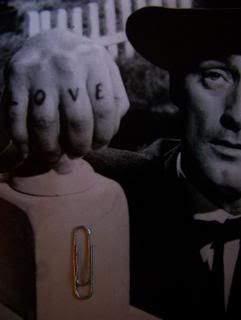Alex Tilney is an exciting man living in exciting times. Like the rest of us, he has battened his head for too long and now emerges seeking original response. He writes "for myself, strangers, and the elderly." He joins the Seventh Draft discussion in full regalia.
Hey Seth, Josh, and now Tommy (yesssss),
First of all, I wish my name were Attila Jozsef.
I had a beer with Josh last week and he infected me with the plague that produced this blog (another name for the blog could have been 'The Bubo.') Generally, I'm having some trouble lately buying the conceit of naturalistic fiction: 'you will experience the following writing as a mimesis* of lived experience, and the dream of the story will illuminate people and the world for you.' When I look back over my last full semester of creative work (I wrote the essay this semester), I had a couple stories I was proud of, but the things that have the most live-wire energy are the letters I wrote to my advisor. There it's just me talking and trying to connect with Victor LaValle, and that's where it seems like the effort to communicate a state of mind finds the most success. And as I'm approaching a lot of my story ideas now, the parts that feel least compelling are the "and then she got out of bed and went to the door to listen…" i.e., the show don't tell parts.
We all decided to spend so much time and energy on fiction writing because novels and stories have been kicking our asses since forever, but for the last 6+ months, I just haven't wanted to read any more fiction. I thought it was because I'm lazy; or because I had been writing stories with the aim of having them be 'finished stories' instead of recreations of lived experience, and so I needed to clear out all the built-up writerly residue in my brain; or because I get so many stories already from TV, movies, journalism, etc. Maybe all of these reasons are true, but I think, Seth and Josh, you have a point that fiction just doesn't seem to be quite the right tool or toy these days.
Like you two (or three), a lot of the ideas I've been having lately are much more marginalia-type stuff, and when I try to turn them into finished stories, I wince. My grandmother's 80th birthday party was last month, and the dinner was just overflowing with stuff I wanted to write about, but the idea of making a fictionalization out of X or Y situation just seemed like this huge exhausting detour. So along comes this blog for these other things I want to do, and I'm thankful and excited.
Anyway, so, this first post is a little more throat-clearing intro than my posts will be from now on, and more about Jesus and Transformers soon.
Before then, though: Josh, you mention that you can't think of a novel that you can open on any page and really like and get drawn into the way you can with Seinfeld. I agree to the rafters, but Infinite Jest jumped into my mind as a huge exception. I can open that book to almost any page and get sucked in, delighted, pissed-off, etc., etc. I know I'm going to get hated on because of Infinite Jest's reputation and because I insist on talking about it even though Josh, who has read seventeen times as many novels as I have, hasn't read this one. Oh, well--when I am doubting fiction, that book still has so much verve and all the people still exist even when they're off-stage, and so it keeps me hopeful.
Also, Bruce is cheesy.
Yours in grabbing hard young breasts,
Alex
*(I looked up 'mimesis' again because it's one of those literary terms I'm always a bit hazy on, and another of its meanings that I didn't know is: "the occurrence of a disease's symptoms in somebody who does not have the disease, often psychosomatically caused.' So maybe the bubo under my literary armpit is a fake. Oh, well.)
From Resolution to Reality: Part II
4 years ago



4 comments:
I still think of the pulled pork sandwiches we had before seeing transformers. Alex, that was probably the most pleasant moment of my WW experience. Yeee-yay-uh.
I'm going to suggest without having read it that "Infinite Jest" escapes the novels suck trend for the same reason that War & Peace, Ulysses, and The Making of Americans do: it's so long that the normally "tight" plot of conventional fiction collapses (or isn't even there to begin with), leaving behind focus on the moment, intensity, play of language.
What sucks about novels: you shoot yourself through them like a kid on a rollercoaster. But genrebreakers like these are manifest, exist moment to moment, and do not point in one or even three directions. Thank god.
Ah, pulled pork. I think that's going to be a new permanent part of WW.
Josh, I think you got it. But I don't want it to be true. Probably because I'm really intimidated by writing something that could get out of hand and get all baggy-monster, or is just dumb. Also, I'm lazy, and lots of pages seems like a hassle.
Wait. Now are the breast you grab young, and you grab them hard? Or are they hard and young and you grab them?
Post a Comment